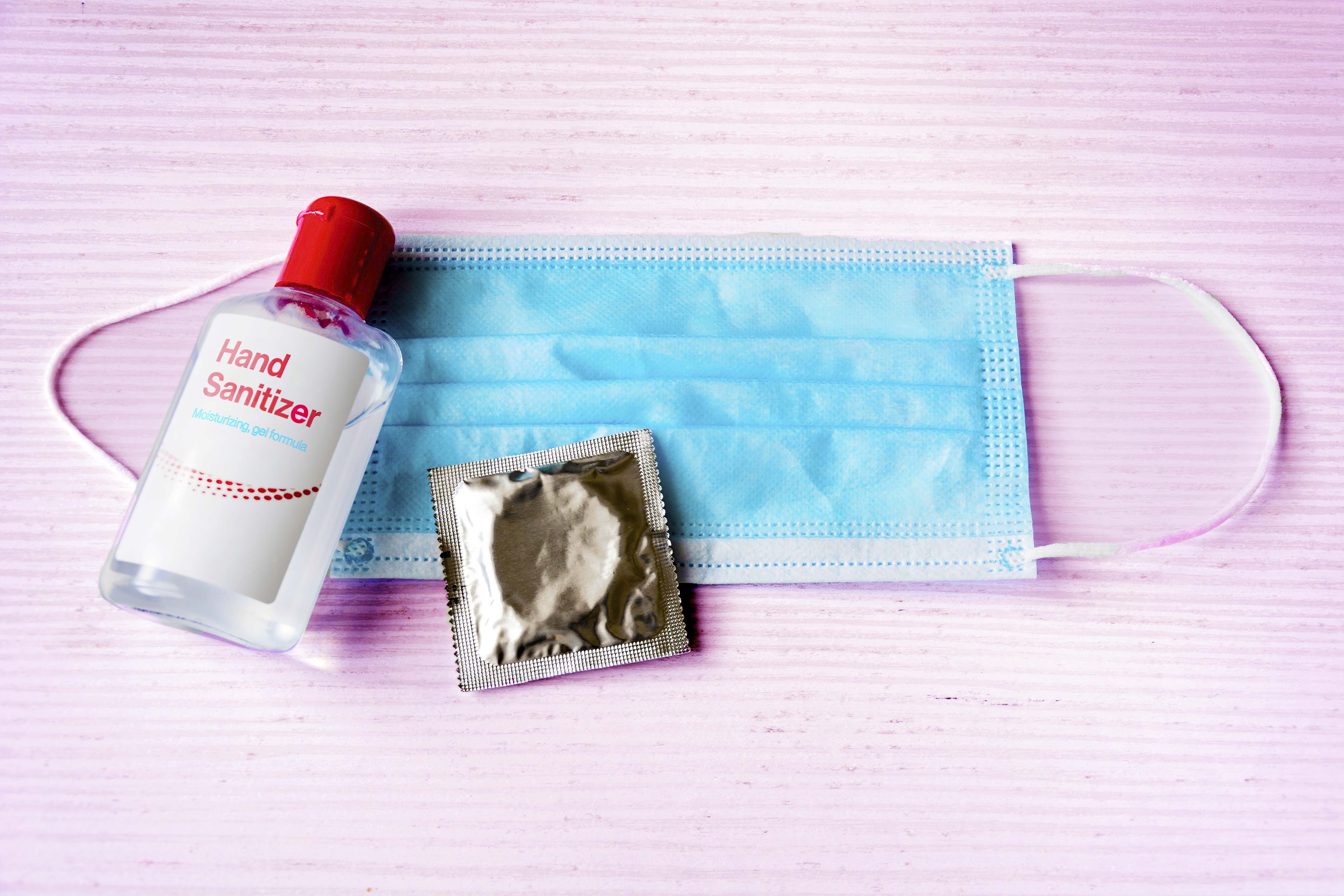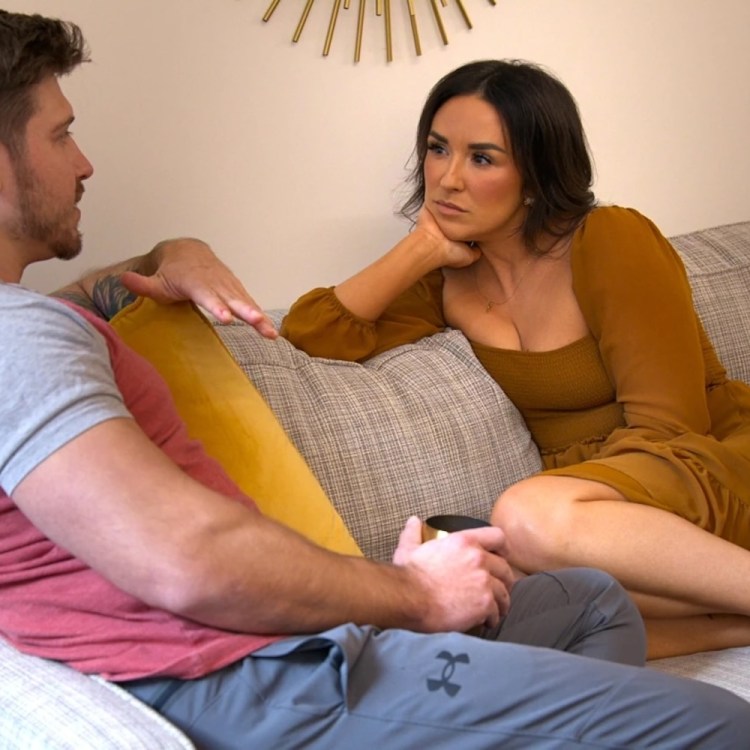My post-COVID resolution was to be better about condoms.
After lockdowns began in March, I, like many single people without a partner to quarantine with, went a solid few months without sexual contact of any kind. By the time July rolled around and I decided I felt comfortable enough to begin dating again, I figured this might be a good opportunity to start over with a clean sexual slate. After visiting the gyno for a full STI exam and a new form of birth control, I was ready to begin a new, condom-conscious chapter of my sex life.
I blew it immediately. After stopping my first post-COVID hookup mid-foreplay to ask if he had a condom, he replied, “I’m sure we can figure something out.” Unsurprisingly, what we ultimately “figured out” was that he simply wouldn’t wear a condom and I … would just kind of go along with it.
It’s a story I’ve heard from other women many times. We are smart, educated, sexually experienced women. We know we should be using condoms, we want to use condoms. And yet, somehow or other, we end up having sex without them.
I’m not talking about “stealthing,” a form of sexual assault in which a man removes a condom during sex without his partner’s knowledge or consent. Rather, I’m talking about situations in which women who would prefer to wear condoms ultimately consent to having sex without them — which is something that probably happens more often than many people, particularly straight men, might think.
“I’ve had this conversation with so many female friends,” says writer and sexual health activist Ella Dawson. “This is a huge issue, and I think it’s something that a lot of women, in particular young women, do experience.”
At this point, any straight men still reading this might be wondering, “OK, so why would a woman consent to something she doesn’t really want to do, and how is that my fault?”
These are both good questions. As for the latter, it’s probably not your fault, assuming you aren’t actively trying to pressure or coerce a partner out of condom use — which is malicious and reprehensible. But this isn’t about calling men out for not wanting to wear condoms or even, really, for pressuring women to go bareback. At the end of the day, everyone, regardless of sex or sexuality, bears the ultimate responsibility for their own sexual health and the decisions they make regarding it.
That said, even if you aren’t the guy who’s actively trying to talk his partner out of using a condom, she still might be consenting to sex without one when she doesn’t really want to — which brings us back to the first question: Why?
The idea that women would or even could consent to condomless sex when they don’t really want to is understandably perplexing, until you remember that women consent to things they don’t want to do all the time — including, as Dawson has previously written, sex itself.
“Young women say yes to sex they don’t actually want to have all of the time. Why? Because we condition young women to feel guilty if they change their mind,” Dawson wrote in the 2017 essay Bad Sex. “The hard truth is that we teach young women and girls to not make a scene, even when there’s no one else in the room. Don’t be difficult, don’t be selfish, don’t be inconvenient, don’t be rude. Your discomfort is less important than his comfort. Your feelings are less valid, less valuable than his feelings.”
The same social conditioning that encourages women to consent to sex they don’t want to have can also leave women consenting to condomless sex when they would’ve preferred to use a barrier. The dominant heterosexual condom narrative holds that men don’t want to wear condoms and the onus falls on women to insist. But what woman raised on patriarchal kool-aid that teaches her to prioritize men’s sexual pleasure wants to insist on something she’s told will directly inhibit that sexual pleasure? Even when a male partner isn’t actively reinforcing these pressures, many women may still find themselves unwilling to speak up or insist on condom use, unwilling to put their own needs and sexual health above a male partner’s pleasure.
“I do believe that some heterosexual women have a tough time asserting their boundaries by enforcing condom use during sex, and it isn’t necessarily because women are inherently more lenient or docile than men,” says Tatyannah King, a sex blogger and graduate student at the Widener University Center for Human Sexuality Studies. “I think a lot of this struggle has to do with power dynamics placed on us due to sexism, patriarchy and a sex-negative culture that we live in. Usually, conversations and overall language toward sexuality are centered on the gratification of heterosexual men, so it can be common for women to internalize that and place more focus on sexual acts toward men’s pleasure.”
This can obviously make it difficult for women to enforce condom use in situations in which a male partner is actively arguing against it, but it can also keep women quiet in more subtle scenarios in which well-meaning men simply don’t have or don’t offer to get a condom.
“There’s no bad actor in that sexual experience who’s forcing women to do something that they don’t want to do,” Dawson tells InsideHook. But when men aren’t aware of the social conditioning many women have internalized from a young age, a conflict of intent vs. impact can arise. “They may not intend to be pressuring us to do something we don’t want to do, but that is still the impact because of the power dynamic that they’ve unwittingly stumbled across,” says Dawson.
Again, none of this is to suggest that the women in these situations aren’t responsible for their own choices, nor that men should bear the full responsibility for condom use in hetero encounters. Rather, I am arguing that in sexual situations, many women may be influenced by social pressures of which men are simply, through no fault of their own, unaware. I am also arguing that sex could be a lot better for everyone involved if they were.
This, sexologist Michelle Hope explains, is why we need better sex ed.
“I think it has a lot to do with lack of education and the absence of pleasure-positive teaching to young women,” Hope tells InsideHook, explaining that many women who hesitate to speak up about condom use “probably just don’t have the language. They have not practiced enough because we have not been teaching young women to be more sexually assertive.”
This lack of comprehensive sex ed doesn’t just affect women, either, Hope adds. We know that people of all genders aren’t great about regularly using condoms, and we seem to only be getting worse at it. A 2019 Cosmopolitan survey of young adults found that 60 percent of 18- to 34-year-olds admitted to rarely using condoms. Meanwhile, the CDC reports the United States has broken its own STI record five years in a row.
This, says Hope, likely also stems from a lack of education about the real risk of STIs, combined with a false sense of sexual security thanks to medical advances in long-acting birth control.
“I think we’ve let our guard down because we don’t have to worry about pregnancy,” says Hope. For men, who tend to have less direct concerns about pregnancy to begin with, perception of risk in sexual situations is often even lower.
“Women have more factors to weigh when choosing to use condoms or not,” says certified sex educator and pleasure coach Tyomi Morgan, a sexologist for sex-toy brand Sweet Vibes. “They have to think about the possibility of pregnancy, becoming infected with STIs and sexually associated infections like bacterial vaginosis or yeast infections, and the emotional bonding that can come along with becoming fluid bonded.” Meanwhile, adds Morgan, “a man’s decision is based primarily on pleasure,” and unfortunately, “hetero men tend to prioritize their pleasure and needs over the needs of their female partners.”
This, however, is not to say that all women who ultimately make the choice to have sex sans condom do so because they feel pressured to, either by their partner or by society. For many women, the choice to go without a condom is an active one based on their own physical and emotional preferences.
“On one hand there are women who may not feel comfortable speaking up. On the the other hand there are women who genuinely do not like using condoms,” says Davia Frost, certified sex and relationships educator and coach.
“Regardless of gender, there’s a noticeable difference in sensation and friction during sex with condoms versus without condoms,” adds King, explaining that men aren’t the only ones who might prefer the feeling of condomless sex.
Meanwhile, for people of all genders, there tends to be an understanding of sex without a condom as a more intimate, complete sexual experience. This increased sense of intimacy is, in some ways, rooted in the physical — particularly for women, who may experience a heightened sense of emotional satisfaction thanks to “fluid bonding” during barrier-free sex.
“Some women actually prefer to have sex barrier free to feel the natural feeling of bare sex,” says Morgan. “Some women enjoy being fluid bonded with their partners and choose not to use condoms to receive the chemical exchanges that come with fluid bonding.”
However, like many aspects of sexual culture, this romanticization or eroticization of condomless sex may largely reflect societal messaging.
“Think about all the sex scenes you’ve ever seen in your life, and then think about how many of them actually use a condom or make reference to a condom or there was a condom wrapper in the scene,” says Hope. “In all these images of what we’re told heteronormative sex looks like, nowhere are there condoms. Nobody’s talking about condoms. It’s just not a part of what we’re thinking about.”
A lack of condom representation in media combined with an incomplete understanding of STI risk inevitably makes it easy for people of all genders to talk themselves and their partners out of using condoms. In situations in which a condom isn’t available or someone would prefer not to use one, it becomes easy for us to rationalize risky sex.
“‘I’m sure he’s fine. If I’m not on birth control, I’ll get the morning after pill.’ And then we negotiate that in our minds,” says Hope. “We’ve all done it. We all make rationales for why we do it. But I think part of why we make those rationales is because we’re negotiating what we’ve always seen sex look like. Visibility matters.”
Meanwhile, such negotiations often reveal our flawed, biased understanding of STIs and who is at risk of contracting or spreading them.
“I’ve heard adult men say things like, ‘She didn’t look like she had an STI,’” says Hope. The reality, of course, is that all sexually active individuals can spread and contract STIs, but society’s deeply stigmatized, largely misinformed attitude toward sexual health makes it easier for us to convince ourselves it can’t happen to us. If someone seems like a nice person with a good job, it’s easy to tell ourselves they couldn’t possibly have an STI.
This, of course, is bullshit. STIs are not “a reflection of your character or your modality or your choices,” says Dawson. “A lot of people have STIs, a lot of people don’t know that they have STIs, and wearing a condom is a very, no-nonsense way to be responsible and to minimize risk.”
But in the heat of the moment, whether we’re focused on our own pleasure or that of our partners, it’s easy to minimize our own perception of risk.
“We’re just very quick to get the instant gratification of a nut,” says Hope. “So we’ll play Russian roulette because it feels good.”
At the end of the day, many people of all genders suck at using condoms. While women may have the added pressure of a lifetime of internalized social conditioning telling us to put a man’s pleasure above our own health and needs, the reality is that everyone is ultimately responsible for protecting their own sexual health and that of their partners. How do we do this? By using condoms, yes, but also by being better at communicating our needs and boundaries and checking in with our partners about theirs. Our post-COVID sex resolutions shouldn’t just be about condoms. We should want to be better about communication, too.
“We’re not very good communicators and we’re never taught to communicate about what we do and don’t want sexually or what we are and are not comfortable with,” says Dawson. “We all have a responsibility in being good sexual citizens to make it okay for people to say no in those moments, to have a conversation about it, instead of just assuming or going forward with something. That’s what people want when we talk about explicit, enthusiastic consent — and it leads to better sex, too. It’s what you should want to do.”
The Charge will help you move better, think clearer and stay in the game longer. Subscribe to our wellness newsletter today.



























